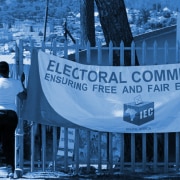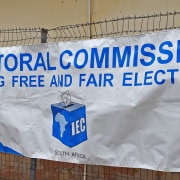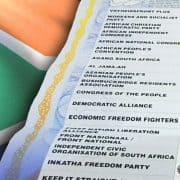|
Getting your Trinity Audio player ready...
|
By Natalie Keetsi
First published on the Global Anticorruption Blog
In South Africa, the Political Party Funding Act (the PPFA) regulates campaign donations and expenditures to political parties. By imposing various limits and transparency requirements, the PPFA – which is overseen by South Africa’s Independent Electoral Commission (IEC) – is supposed to prevent corruption and other forms of undue influence that campaign donors may seek to exert over officeholders.
But South Africa’s political campaign financing laws contain a significant loophole, one that arises due to an unusual feature of how appointments to the executive branch of government work in South Africa. In contrast to many other jurisdictions, in South Africa members of the incoming governing coalition who seek appointment in the executive branch (including the president) engage in hotly contested intra-party political campaigns, and these campaigns are also funded through donations.
Until recently, not only were donations to these intra-party campaigns not regulated by the PPFA, but they did not have to be disclosed under the Executive Ethics Code (Ethics Code). This potentially opened the door for corruption and influence peddling, with millions of dollars funnelled to campaigns of South African politicians who sought positions in the executive branch.
For instance, President Cyril Ramaphosa’s 2017 intra-party political campaign (the CR17 campaign) to become president of the ANC and, eventually, South Africa, received an estimated US$20-million in donations. It was subsequently uncovered that US$37 000 had been donated by a corrupt entity formerly known as Bosasa. Bosasa was notorious for making exorbitant donations to the ANC as a quid pro quo to secure significant contracts from the ANC-led government. While it remains to be proven whether the allegations that Bosasa’s donation to the CR17 campaign was nefarious, or whether Ramaphosa personally benefited from donations made to his campaign, the non-disclosure of these and similar donations raises serious risks.
Recently, however, the Constitutional Court held that the Ethics Code in its current form is unconstitutional insofar as it fails to require disclosure of all donations made to intra-party political campaigns. The court reasoned such non-disclosure deprived South African citizens of their constitutional right to information that is essential to making informed political choices when exercising their constitutional right to vote; the court also concluded that this lack of transparency increased the risk of corruption.
The court mandated the president to cure the defect arising by amending the Ethics Code by September 2023. The court did not, however, prescribe the precise form the amendment should take because doing so would be inconsistent with the role of the judiciary under South Africa’s separation-of-powers doctrine.
When amending the Ethics Code to comply with the court’s ruling, the guiding principle should be, to the extent feasible, to align disclosure obligations for donations to intra-party campaigns with the obligations currently imposed by the PPFA on inter-party political campaigns. Applying that principal suggests that the Ethics Code should be amended to impose the following two core requirements:
- First, all those campaigning for executive branch appointments should be required to make full disclosure of political donations made to their intra-party political campaigns, regardless of the outcome of the campaign. Those disclosures should be required to include the amount donated and the identity of the donor.
- Second, the candidate or their intra-party campaign should be required to submit a declaration of interest concerning the relation between the donor and the candidate, as well as an audited statement of account which includes the expenses and disbursements made from the donations received by the campaign.
Regulations only as effective as enforcement
Even if such reforms are adopted, however, the effectiveness of these new disclosure requirements will depend on effective enforcement. Enforcement of the reformed Ethics Code should rest with an independent body with the power to review, verify, and monitor disclosures, as well as the responsibility to collect and publish the disclosures on a publicly accessible platform. The enforcement body should also have the authority to investigate alleged violations. The IEC is well-suited to perform these functions, as it already performs these tasks in respect to donations regulated by the PPFA.
In addition to clarifying the disclosure obligations along the lines suggested above, and vesting enforcement and oversight authority with the IEC, the amendments to the Ethics Code should provide for meaningful administrative sanctions in addition to any other sanction available at law – against any candidate who violates the Ethics Code, including suspension, termination, or disqualification from holding any position in the executive branch, for either a prescribed or indefinite period depending on the nature and extent of the breach.
The proposals mentioned above would, not only satisfy the Constitutional Court but also ensure a sufficient degree of transparency and accountability concerning donations made to intra-party political campaigns in order to deter corruption and uphold democracy.








